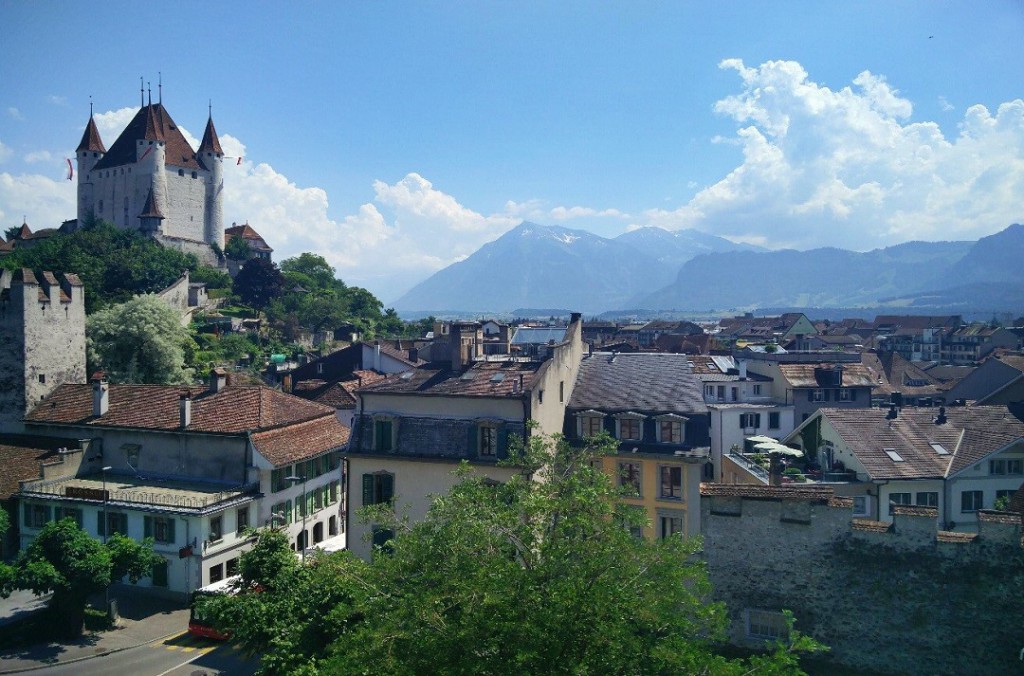With this in mind, team member Lee Wilson used a friend’s wedding in Switzerland as an opportunity not only to brush up on his Swiss German, but also to soak in some of the Swiss traditions and culture. The journey led to the charming city of Thun in the Canton of Bern – a location boasting breath-taking views of the Alps and wonderful architecture, including the 12th-century Schloss Thun (pictured). The town also overlooks the Thunersee, an Alpine lake extending from Thun in the north to the town of Interlaken in the south.
The trip included a rendezvous with colleague Katherine Marlow, as well as other linguists, at a wedding service conducted in no fewer than three languages: German, French and English. Swiss German is fiendishly difficult to understand if you have spent your career working into and out of the standardised Hochdeutsch dialect of German, but with some patience (and lots of paraphrasing) it is possible to get by. And this is but one example of the diversity of cultures Switzerland represents, incorporating French, Italian, Romansh and other Alemannic dialects into the mix.
The visit also coincided directly with St. John’s Day; a time centred around the summer solstice. To celebrate the apostle’s nativity, bonfires are lit at the top of the mountains, which can then be seen for miles around. Similar feasts and bonfires are held in a variety of other northern European countries; especially in Sweden, where the event is so important that there are proposals to make Midsummer a national holiday.
There will certainly be more trips to come for LKT staff. And if the sheer number of fridge magnets in the office is anything to go by, then the next one can’t be too far away!

